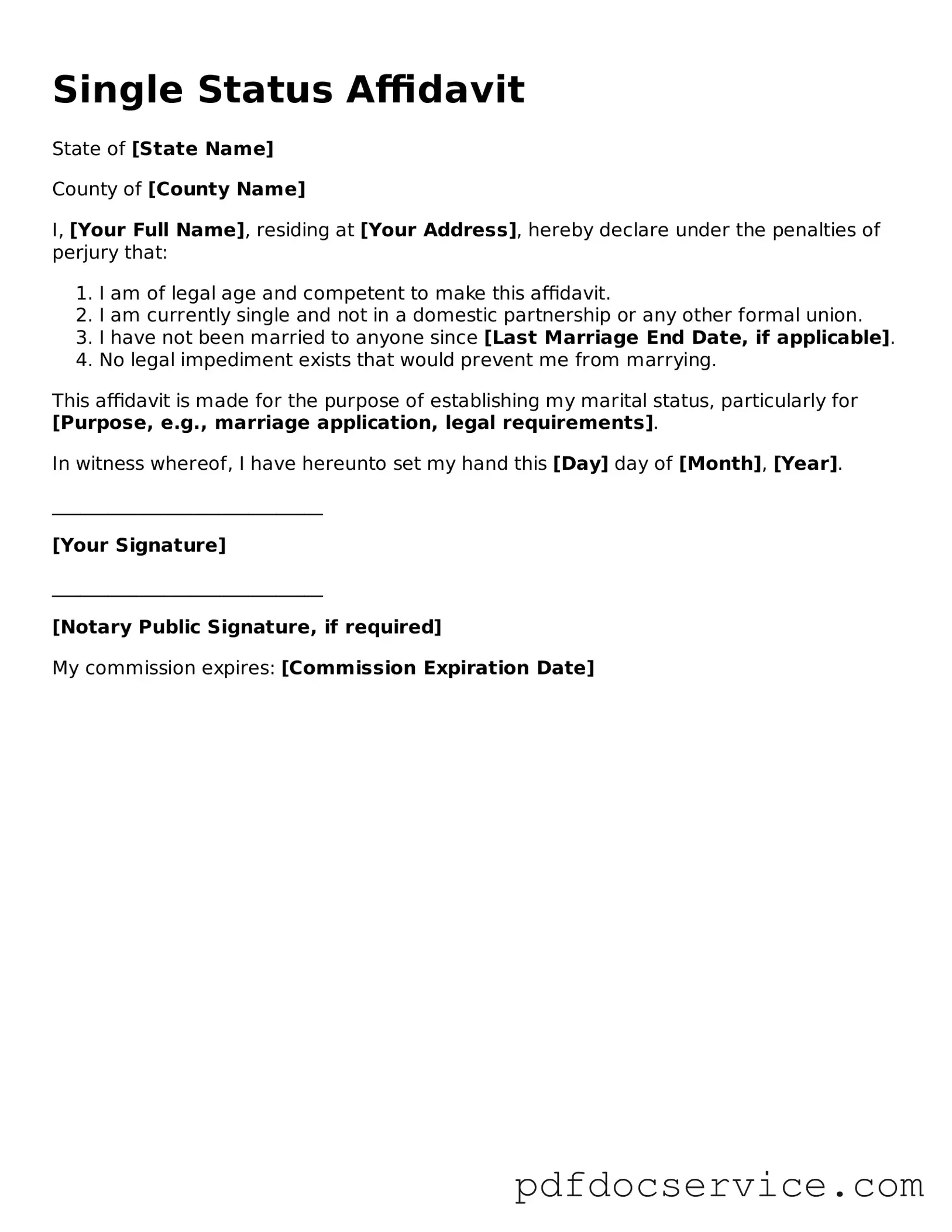What is a Single Status Affidavit?
A Single Status Affidavit is a legal document that confirms an individual's marital status. It is often used for various purposes, including marriage applications in foreign countries or for legal matters where proof of single status is required.
Who needs a Single Status Affidavit?
Individuals who are planning to marry in a foreign country may need this affidavit to prove they are not currently married. Additionally, it can be required for legal proceedings, such as divorce or estate matters, where marital status is relevant.
How do I obtain a Single Status Affidavit?
To obtain a Single Status Affidavit, you typically need to follow these steps:
-
Visit a local notary public or legal office that offers affidavit services.
-
Provide identification and any necessary documents that prove your single status.
-
Complete the affidavit form, which may include personal details and a declaration of your marital status.
-
Sign the affidavit in front of the notary public, who will then notarize it.
What documents do I need to provide?
When applying for a Single Status Affidavit, you may need to provide:
-
A valid government-issued ID (like a driver's license or passport).
-
Any previous marriage certificates or divorce decrees, if applicable.
-
Proof of residency, which may include utility bills or bank statements.
Is there a fee associated with obtaining a Single Status Affidavit?
Yes, there is usually a fee for notary services when obtaining a Single Status Affidavit. The cost can vary depending on the notary and the location. It's advisable to check in advance to understand the specific charges.
How long is a Single Status Affidavit valid?
The validity of a Single Status Affidavit can vary based on the requirements of the country or organization requesting it. Generally, it is advisable to obtain a new affidavit if it has been more than six months since it was issued, as some entities may have specific time frames for acceptance.
Can I use a Single Status Affidavit for multiple purposes?
Yes, a Single Status Affidavit can often be used for multiple purposes, such as marriage applications, legal proceedings, or other situations where proof of single status is required. However, it is essential to ensure that the affidavit meets the specific requirements of each situation.
What if my Single Status Affidavit is rejected?
If your Single Status Affidavit is rejected, it is crucial to find out the reason for the rejection. Common issues may include missing signatures, improper notarization, or failure to provide required documents. You can typically correct these issues and resubmit the affidavit for approval.

